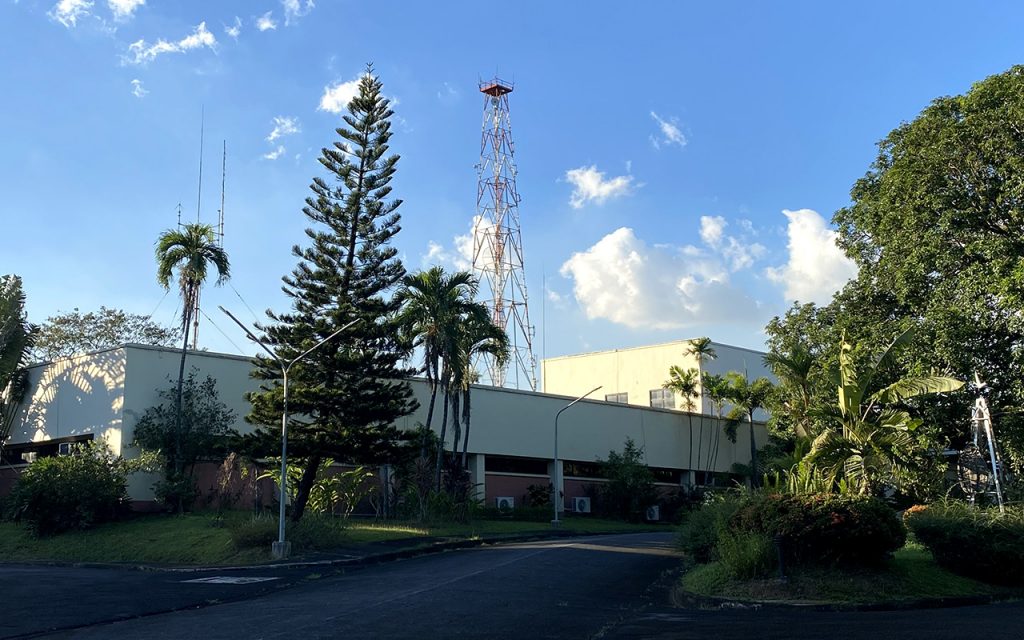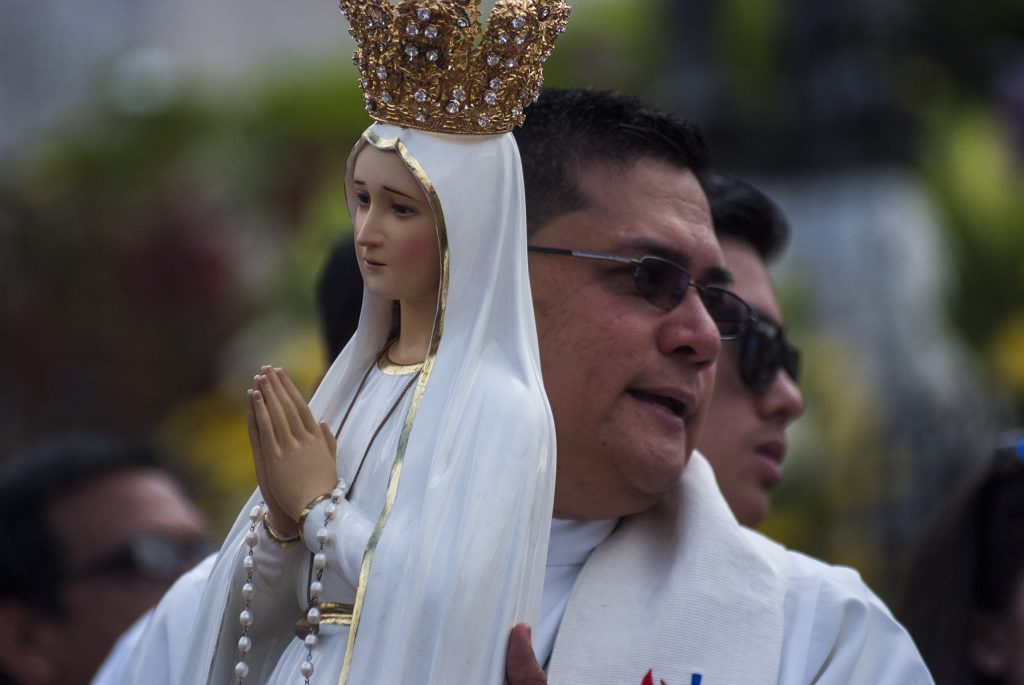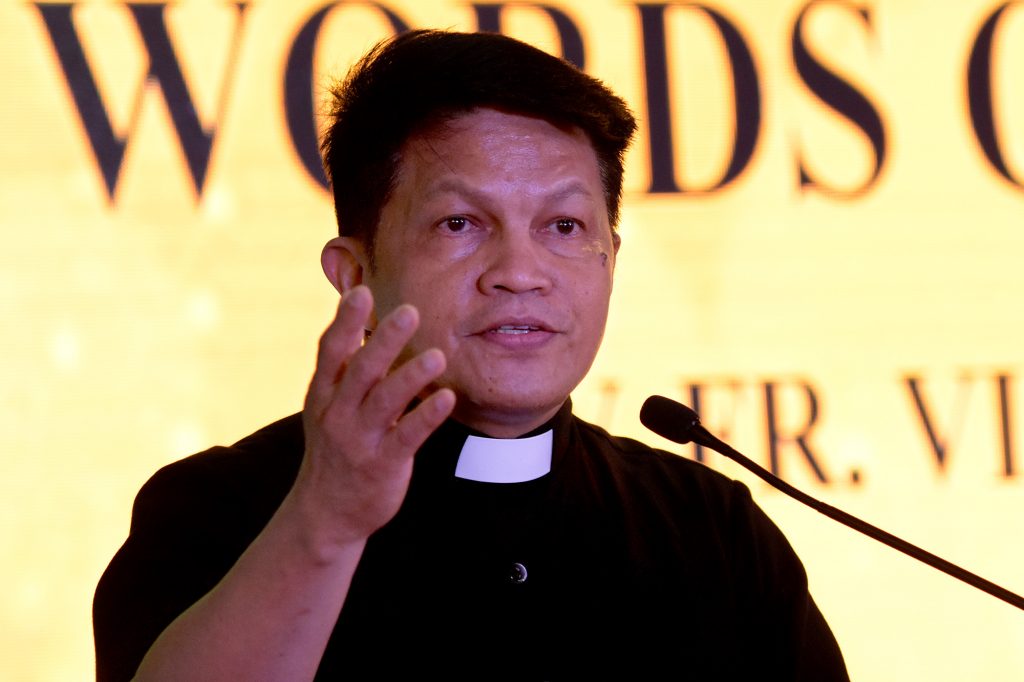
“This is Cardinal Sin speaking to the people of Metro Manila, I am calling our people to support our two good friends at the camp. If any of you could be around at Camp Aguinaldo to show your solidarity and your support in this very crucial period when our two good friends have shown their idealism, I would be very happy, please come.”
Those were the words of the late Cardinal Jaime Sin of the Archdiocese of Manila at the start of what would later be known as the Philippines’ “People Power Revolution” in 1986 that ended more than two-decades of former president Ferdinand Marcos’ rule.
The so-called peaceful revolution, also known as the “EDSA Revolution,” after Epifanio delos Santos Avenue where the event happened, was a series of popular demonstrations in the Philippine capital from February 22 to 25, 1986.
A few hours after Cardinal Sin spoke over the Church-run radio station and called for support for then Defense Minister Juan Ponce Enrile and Armed Forces vice chief of staff, Lt. Gen. Fidel Ramos, military forces loyal to Marcos bombed the 40-million-peso transmitter of Radio Veritas in the province of Bulacan, north of Manila, resulting in the radio broadcast going off the air.
It was a moment of tension and confusion. People lost the last source of information during those uncertain days after authorities closed most of the country’s media outlets.
Cardinal Sin ordered American Jesuit missionary priest James Reuter to set up an “underground radio station” that was eventually called “Radyo Bandido” or “Bandit Radio” and manned by Radio Veritas personnel and broadcaster June Keithley-Castro, who later became known as the “voice of the revolution.”
“Radyo Bandido” replayed the call of the cardinal for people to go out even as it delivered the latest information from around the country, especially in the capital. The radio station became the “voice and ears” of the people until Marcos fled the country on Feb. 25, 1986.

True to its name
True to its name, Radio Veritas reported only about what was happening, about the protests and demonstrations, about events that turned the tide against the Marcos government that state-run media outlets did not report before the uprising.
“I was still a seminary student then,” recalled Claretian missionary priest Victor Sadaya, now general manager of Radio Veritas Asia. “I was a seminarian recruiting other seminarians to join what we then called the ‘parliament of the streets,'” he recalled.
“Radio Veritas was our main source of information,” said Father Sadaya. “While the events were unfolding, Radio Veritas was reporting it in other languages that were broadcast around the world,” he added.
Radio Veritas started to gain followers when it first reported the assassination of the late senator Benigno Aquino on Aug. 21, 1983. The death of Aquino sparked the series of protests that became the EDSA “People Power” phenomenon three years later in 1986.
The Church-run radio station’s coverage of the February 1986 snap presidential elections, a contest between the dictator Marcos and Aquino’s widow, Corazon, brought to the fore the ability of Radio Veritas to bring about timely and in-depth analyses of the situation that were anchored on the Catholic Church’s social teachings.

For its contribution to the history of the country and for “its crucial role in using truth to depose an oppressive and corrupt regime and restore Filipino faith in the electoral process,” Radio Veritas was given the Ramon Magsaysay Award, considered as Asia’s Nobel Prize,
The award-giving body noted that between 1983 and 1986 “those in charge of Radio Veritas played a key role in mobilizing the people’s power for a remarkably peaceful transition in authority.”
In 2019, during the 50th anniversary of the establishment of Radio Veritas, Cardinal Luis Antonio Tagle of Manila cited the important role played by the station in helping spread the Word of God “through media and modern technology.”
Father Sadaya said Radio Veritas Asia will continue to hold strong the mission of the Church “to protect the truth regardless of the political climate of the country.”
“Part of the Church’s mission is to speak for the rights of the people, to promote justice in society, and if the government is failing to do that, the Church is here to tap the government and remind [people in the government] that they are not fulfilling their mandate to protect the people,” said the priest.
“Radio Veritas and the Church remain and will remain to be the voice of the people,” he added.
Source: Licas Philippines
0 Comments